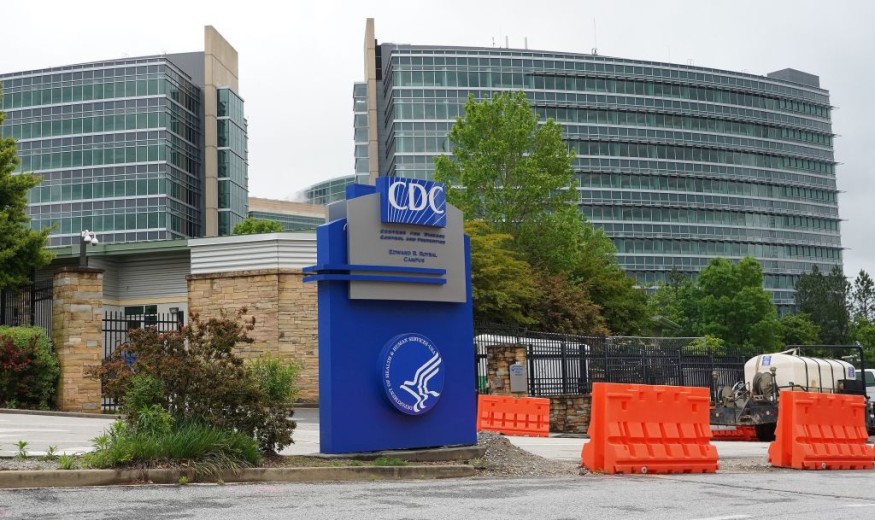For the first time in American soil and water, the Centers for Disease Control and Prevention (CDC) found a deadly disease called Burkholderia pseudomallei. These bacteria may cause an illness with severe pneumonia-like symptoms.
During an inquiry into two human melioidosis cases, B. pseudomallei was discovered through environmental monitoring of soil and water in the Gulf Coast region of southern Mississippi.
Melioidosis is an uncommon but dangerous disease brought on by this bacteria, Fox21 News reported. Any organ, including the brain, can get infected with melioidosis, manifesting as a localized infection, pneumonia, bacteremia, or widespread infection.

Deadly Melioidosis Bacteria Infection Arrives in U.S.
The CDC issued a health notice to healthcare professionals on Wednesday, noting that up to 50 percent of melioidosis infections result in death.
According to the CDC notice, the finding was achieved by linking two instances of melioidosis brought on by the same strain of B. pseudomallei. Today added that the two cases (in 2020 and 2022) were two years apart.
However, the patients were neighbors in Mississippi, and neither had recently traveled abroad. Both times, despite needing to be hospitalized due to sepsis, the patients were successfully treated with antibiotics.
The CDC said that most individuals exposed to germs don't acquire melioidosis. Dr. Chris Woods, a professor of medicine at the Duke Global Health Institute, told NBC News that "It takes a significant exposure" to get sick.
However, the CDC noted that some underlying diseases, such as diabetes or chronic kidney or lung disease, increase a person's risk of becoming ill.
ALSO READ : CDC Confirms Cases of Melioidosis in Mississippi Gulf Coast Due to Burkholderia Pseudomallei Bacteria
Who Is More At Risk?
Ars Technica pointed out that those with certain illnesses, such as diabetes, strong alcohol use, chronic lung disease, chronic renal disease, and disorders that impair immunological responses, are more susceptible to melioidosis than others. The virus seldom spreads from person to person, which is excellent news.
Depending on how B. pseudomallei enters the body, melioidosis symptoms may develop. It may result in discomfort, edema, and an abscess if it enters through a skin wound. Joint pain, stomach discomfort, and confusion may result if it enters the circulation. It can cause chest discomfort and coughing if it penetrates the lung.
About This Deadly Bacteria
CBS News wrote that the deadly condition, known as the "great mimicker," is infamously tricky for doctors to identify due to the vast range of symptoms it can produce.
Fever, edema, coughing, joint discomfort, and convulsions are just a few of the symptoms that might vary depending on where in the body the infection occurs. The bacterium may infect any organ, including the brain.
While the United States does experience a few instances of melioidosis each year, these cases are mostly brought on by travel outside to countries where the bacterium is more prevalent. It is typically found in the soil and water in tropical regions like Southeast Asia and northern Australia.
One research indicated that 1 in 4,600 encounters with bacteria results in illness. However, mortality rates for people who get melioidosis can range from 10 percent in Australia to 35 percent in Thailand.
Additionally, it might be challenging for laboratories to correctly identify Burkholderia pseudomallei in patient sample collections. Scientists analyzing the sample with an automated system originally misdiagnosed a case in Texas from a previous unrelated epidemic.
According to the CDC, an average of 12 cases are routinely detected nationwide each year, usually in visitors who have just returned from a tropical foreign location where the bacterium is well-established in the environment.
"Because of the identification of this bacteria on the Mississippi Gulf Coast, persons at high risk for severe infection living on the Gulf Coast should take recommended precautions," Mississippi's state epidemiologist, Dr. Paul Byers, said in a statement.
The CDC estimates that the bacterium has been present in the region since at least 2020 and that the danger to the general population is "very low" Numerous healthy individuals who come into contact with the germs in the environment never get melioidosis.
RELATED ARTICLE : Antimicrobial Resistance: New Study Discovers That Bacteria Connect to Exchange DNA and Fight Antibiotics Making Curable Illness Fatal
Check out more news and information on Medicine and Health in Science Times.
© 2026 ScienceTimes.com All rights reserved. Do not reproduce without permission. The window to the world of Science Times.











